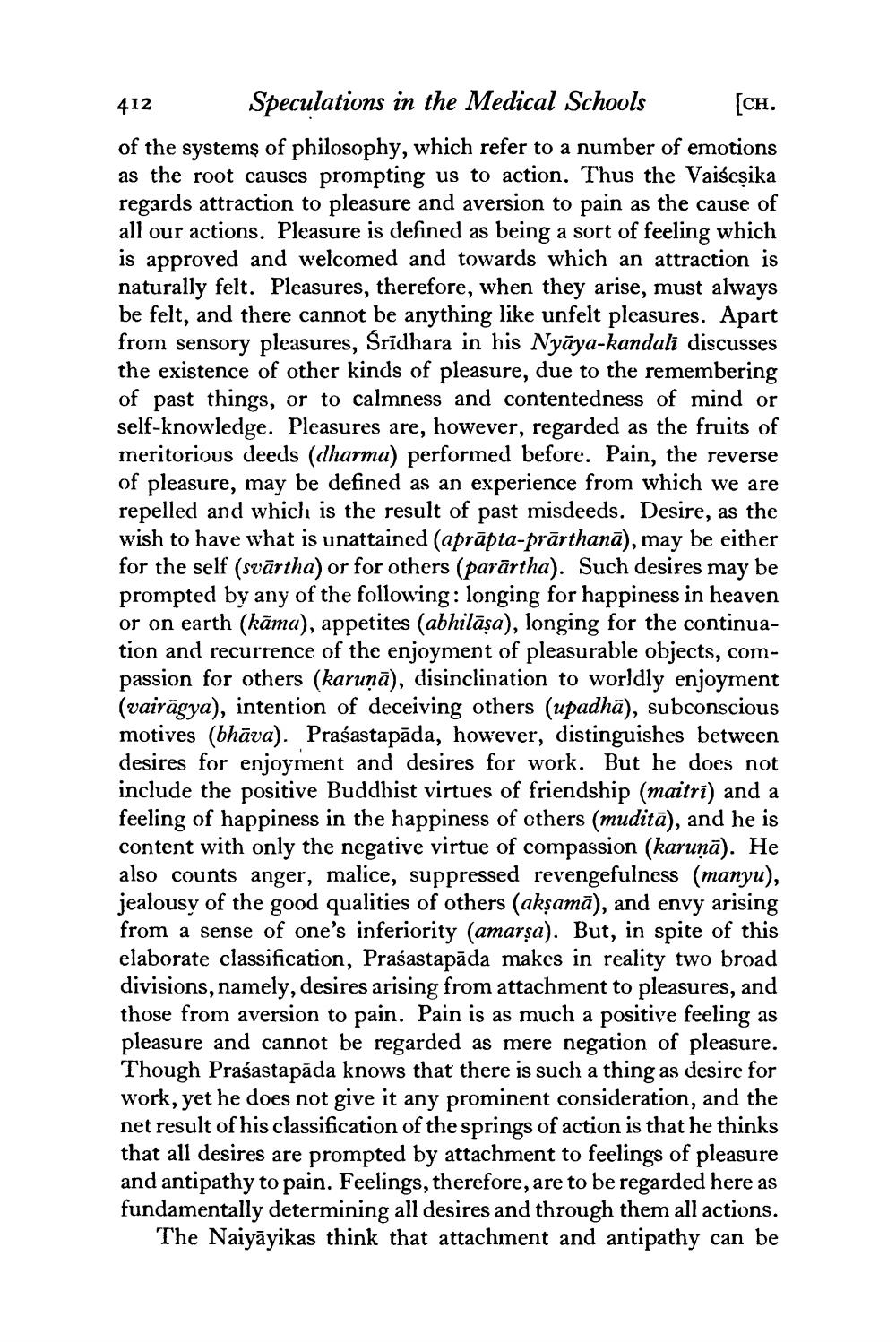________________
412
Speculations in the Medical Schools (CH. of the systems of philosophy, which refer to a number of emotions as the root causes prompting us to action. Thus the Vaiseșika regards attraction to pleasure and aversion to pain as the cause of all our actions. Pleasure is defined as being a sort of feeling which is approved and welcomed and towards which an attraction is naturally felt. Pleasures, therefore, when they arise, must always be felt, and there cannot be anything like unfelt pleasures. Apart from sensory pleasures, Sridhara in his Nyāya-kandali discusses the existence of other kinds of pleasure, due to the remembering of past things, or to calmness and contentedness of mind or self-knowledge. Pleasures are, however, regarded as the fruits of meritorious deeds (dharma) performed before. Pain, the reverse of pleasure, may be defined as an experience from which we are repelled and which is the result of past misdeeds. Desire, as the wish to have what is unattained (aprāpta-prārthana), may be either for the self (svārtha) or for others (parārtha). Such desires may be prompted by any of the following: longing for happiness in heaven or on earth (kāma), appetites (abhilāşa), longing for the continuation and recurrence of the enjoyment of pleasurable objects, compassion for others (karuņā), disinclination to worldly enjoyment (vairāgya), intention of deceiving others (upadhā), subconscious motives (bhāva). Prasastapāda, however, distinguishes between desires for enjoyment and desires for work. But he does not include the positive Buddhist virtues of friendship (maitri) and a feeling of happiness in the happiness of others (muditā), and he is content with only the negative virtue of compassion (karunā). He also counts anger, malice, suppressed revengefulness (manyu), jealousy of the good qualities of others (akşamā), and envy arising from a sense of one's inferiority (amarşa). But, in spite of this elaborate classification, Prasastapāda makes in reality two broad divisions, namely, desires arising from attachment to pleasures, and those from aversion to pain. Pain is as much a positive feeling as pleasure and cannot be regarded as mere negation of pleasure. Though Prasastapāda knows that there is such a thing as desire for work, yet he does not give it any prominent consideration, and the net result of his classification of the springs of action is that he thinks that all desires are prompted by attachment to feelings of pleasure and antipathy to pain. Feelings, therefore, are to be regarded here as fundamentally determining all desires and through them all actions.
The Naiyāyikas think that attachment and antipathy can be




